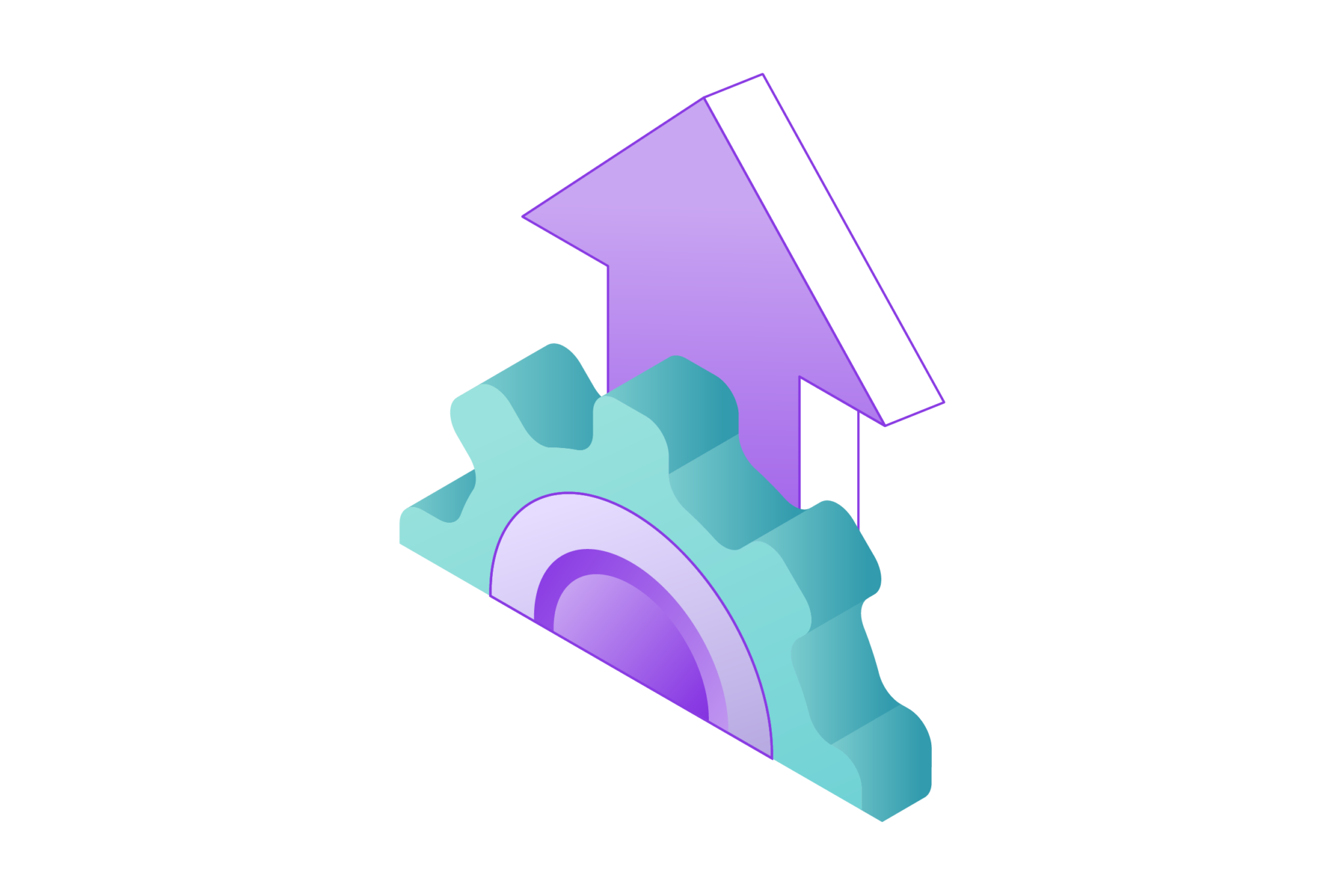
Quantitative researchers, commonly referred to as “quant researchers,” specialize in applying complex mathematical models and advanced statistical methods to interpret vast amounts of data. In industries such as finance and investment, where data-driven decision-making is essential, quant researchers help firms identify patterns, make forecasts, and optimize strategies based on mathematical insights. Their work is foundational in shaping modern financial strategies, especially in areas like algorithmic trading and risk management.
The role of a quant researcher is both analytical and strategic. By harnessing cutting-edge technology and sophisticated tools, these professionals are capable of developing models that predict market trends or evaluate risks in portfolios. Their work often involves processing large sets of historical financial data to derive actionable insights, which are then used to make informed decisions in real-time trading or investment scenarios. The importance of data accuracy and the reliability of their models cannot be understated, as their findings often guide significant financial movements.
In this article, we will take a deep dive into what defines a quant researcher, the essential skills required for the role, their critical function in finance, and the path to becoming a successful quant researcher. Additionally, we’ll explore the rewards and challenges they face in this fast-paced and highly competitive career.
What is a Quant Researcher?

A quantitative researcher, or quant researcher, is a professional who applies mathematical, statistical, and computational techniques to solve complex problems, primarily in finance and economics. Their primary focus is on developing models that can predict market movements, assess risks, and optimize investment strategies based on data-driven insights. These professionals often work with vast datasets, analyzing historical trends and real-time data to create algorithms that can make financial predictions with a high degree of accuracy.
Also Read: What is Quant Finance? Meaning and Elements
In finance, quant researchers are crucial to the success of hedge funds, investment banks, and proprietary trading firms. They design and implement models that enable firms to execute trades at the right time, assess the risk levels of various portfolios, and make informed decisions about asset management. Their work often leads to the development of automated trading systems that can operate on their own, adjusting to changing market conditions in real time.
Beyond finance, quant researchers also play roles in other industries where data analysis and forecasting are essential. This can include sectors such as insurance, energy, and even healthcare, where predictive modeling helps in everything from assessing risks to optimizing operations.
Key Skills of a Quant Researcher

To succeed as a quant researcher, one must possess a blend of technical and analytical skills, as well as a deep understanding of the financial markets. Here are some of the core skills essential for this role:
- Mathematics and Statistical Analysis: Quant researchers must be experts in advanced mathematics, including calculus, linear algebra, probability, and statistics. These mathematical principles form the foundation of the models used to predict market trends and assess risk.
- Programming and Coding: Proficiency in programming languages such as Python, C++, R, or MATLAB is critical. These languages are used to build and implement the algorithms and models that quant researchers rely on. Strong coding skills allow researchers to manipulate large data sets and optimize their models for better performance.
- Data Analysis and Interpretation: Quant researchers work with large volumes of data, so they must be adept at data analysis. This involves cleaning and organizing data, spotting trends, and ensuring the data is accurate and reliable for modeling purposes.
- Financial Knowledge: While quantitative skills are important, an understanding of financial markets, instruments, and products is also necessary. This includes knowledge of derivatives, stocks, bonds, and other assets that are the focus of financial modeling.
- Problem-Solving and Critical Thinking: Quant researchers often face complex challenges that require innovative solutions. Their ability to think critically and apply mathematical and computational methods to solve real-world problems is crucial in this role.
- Attention to Detail: Accuracy is paramount in quantitative research, as small errors can lead to significant financial consequences. Quant researchers must have a keen eye for detail, ensuring that every aspect of their models and data analysis is precise.
These skills, when combined, allow quant researchers to develop and refine models that can influence multi-million-dollar investment decisions and create a competitive edge for financial firms.
The Role of Quant Researchers in Finance

Quant researchers play an integral role in the financial industry, particularly in fields like investment banking, hedge funds, asset management, and proprietary trading. Their work revolves around using mathematical models and algorithms to analyze financial markets and guide investment decisions. Below are some of the key roles quant researchers fulfill in finance:
Developing Trading Algorithms
One of the most critical contributions of quant researchers is the creation of automated trading algorithms. These algorithms analyze vast amounts of financial data in real-time to identify profitable trading opportunities. By leveraging advanced statistical techniques and machine learning, quant researchers design models that allow firms to execute trades more efficiently, often without direct human intervention.
Risk Management
Quant researchers help financial institutions identify, assess, and mitigate risks. Using historical data and statistical models, they develop strategies to forecast potential risks in portfolios and create models that can adapt to volatile market conditions. This is particularly vital for investment banks and asset management firms, where risk management is crucial for preserving capital and ensuring long-term profitability.
Portfolio Optimization
Quant researchers are involved in optimizing investment portfolios by balancing risk and return. They use mathematical models to determine the optimal allocation of assets within a portfolio, ensuring that investments are diversified and aligned with the firm’s strategic goals. This helps investors achieve maximum returns while minimizing exposure to market risks.
Market Forecasting
By analyzing historical data and identifying patterns, quant researchers create models that forecast future market behavior. These forecasts are used to predict price movements, trends, and market shifts, helping firms position themselves advantageously in the market. Accurate forecasting is key to making informed investment decisions and staying ahead of competitors.
In essence, quant researchers are the backbone of modern financial strategy. Their ability to process large datasets and develop predictive models allows financial institutions to remain competitive in increasingly data-driven markets.
How to Become a Quant Researcher
Becoming a quant researcher requires a combination of education, technical proficiency, and industry-specific knowledge. Below is a step-by-step guide to the path one typically follows to pursue a career in this field:
- Obtain a Strong Educational Background: A solid foundation in mathematics, statistics, and computer science is essential. Most quant researchers hold advanced degrees, such as a master’s or Ph.D., in quantitative fields like applied mathematics, statistics, computer science, or financial engineering. These programs provide the necessary theoretical knowledge and problem-solving skills required for the role.
- Develop Programming Skills: Programming is a core component of quantitative research. Aspiring quants must become proficient in languages like Python, C++, R, and MATLAB, which are used to implement models and handle large sets of data. Many graduate programs include programming courses, but independent study or certifications can also help you strengthen these skills.
- Gain a Deep Understanding of Financial Markets: While mathematical skills are critical, it’s equally important to understand financial markets and instruments such as derivatives, equities, bonds, and commodities. Knowledge of how these markets function and how different instruments interact will enable you to create effective models for trading and risk management. Taking courses or obtaining certifications in finance can be helpful.
- Build Hands-On Experience: Practical experience is crucial in this field. Many quant researchers start by working in internships at financial institutions, investment firms, or hedge funds, where they can apply their theoretical knowledge in real-world settings. Hands-on experience in data analysis, model development, and algorithmic trading is invaluable when transitioning into a full-time role.
- Pursue Relevant Certifications: Although not mandatory, certifications can enhance your credentials and demonstrate a higher level of expertise in both quantitative research and finance. Certifications such as the Financial Risk Manager (FRM) or Chartered Financial Analyst (CFA) can add value to your profile, especially if you are looking to work in areas like risk management or asset allocation.
- Stay Current with Industry Trends: The financial industry is continually evolving, with advancements in machine learning, artificial intelligence, and big data analysis becoming increasingly important. Staying up to date with these trends, learning new tools, and adopting the latest technologies is vital for long-term success as a quant researcher. This may involve attending workshops, conferences, or continuing education in specialized areas.
By following this path, aspiring quant researchers can position themselves for success in this highly competitive and technical field.
Challenges and Rewards of Being a Quant Researcher
Like many specialized roles, being a quant researcher comes with its own set of unique challenges and rewards. While the field is highly competitive and demanding, it offers considerable financial and intellectual rewards for those who excel.
Challenges
- High Pressure and Demanding Work Environment: Quant researchers often work in high-stakes environments where their models and algorithms directly impact investment decisions. This means that the pressure to perform and deliver accurate results is immense. Deadlines are tight, and even minor errors in data or model assumptions can lead to significant financial losses.
- Constant Learning and Adaptation: The financial markets are constantly changing, and so are the tools and techniques used by quant researchers. Staying relevant in the industry requires a commitment to continuous learning, whether it’s adopting new programming languages, mastering advanced machine learning techniques, or keeping up with evolving financial regulations. This constant need for adaptation can be challenging, particularly for those who are more comfortable with static knowledge sets.
- Complexity of the Work: The mathematical and statistical models used by quant researchers are often highly complex, requiring a deep understanding of advanced theoretical concepts. Building these models and ensuring they function properly in real-world scenarios requires meticulous attention to detail and a strong ability to problem-solve under pressure.
- Long Hours: In many cases, quant researchers work long hours, particularly when market conditions are volatile or when projects have tight deadlines. The demands of the job often extend beyond regular working hours, especially in fast-paced trading environments.
Also Read: 7+ Best Quant Finance Programs to Check in 2024
Rewards
- High Earning Potential: Quant researchers are among the highest-paid professionals in the finance industry. Due to the specialized nature of their skills and the significant impact their work can have on a firm’s profitability, they are often compensated generously. Bonuses tied to the success of their models and algorithms can substantially boost their income.
- Intellectually Stimulating Work: For those with a passion for mathematics, programming, and problem-solving, quantitative research offers an intellectually rewarding career. The work involves tackling some of the most complex problems in finance, and the satisfaction of developing a model that leads to significant financial success can be deeply gratifying.
- Career Growth Opportunities: The demand for skilled quant researchers continues to grow, particularly as financial institutions increasingly rely on data-driven strategies. This provides ample opportunities for career growth, whether it’s moving into senior research positions, managing quantitative teams, or transitioning into roles like quantitative portfolio management or risk management.
- Global Opportunities: Quantitative research is a global profession, with opportunities available in major financial centers around the world. Firms in cities like New York, London, Hong Kong, and Singapore are constantly seeking top talent, giving quant researchers the chance to work in different financial markets and gain international experience.
In summary, while the path to becoming a quant researcher can be challenging, the rewards—both financial and intellectual—make it a highly attractive career for those with the right skills and mindset.
Conclusion
Quant researchers play a pivotal role in shaping modern finance by using their advanced mathematical and programming skills to analyze data, build predictive models, and develop strategies that drive financial decision-making. The field requires a unique blend of technical expertise and financial acumen, making it one of the most competitive and rewarding careers in finance. While the challenges—such as long hours, constant learning, and high pressure—can be daunting, the potential for high earning, intellectual satisfaction, and career growth makes it a desirable profession for those with a passion for data and problem-solving.
For those aspiring to enter this field, a strong educational foundation, proficiency in programming, and an in-depth understanding of financial markets are essential. As the financial industry continues to evolve, quant researchers will remain at the forefront of innovation, playing an essential role in helping firms gain a competitive edge in the global market.
Disclaimer: The information provided by Quant Matter in this article is intended for general informational purposes and does not reflect the company’s opinion. It is not intended as investment advice or a recommendation. Readers are strongly advised to conduct their own thorough research and consult with a qualified financial advisor before making any financial decisions.

Joshua Soriano
As an author, I bring clarity to the complex intersections of technology and finance. My focus is on unraveling the complexities of using data science and machine learning in the cryptocurrency market, aiming to make the principles of quantitative trading understandable for everyone. Through my writing, I invite readers to explore how cutting-edge technology can be applied to make informed decisions in the fast-paced world of crypto trading, simplifying advanced concepts into engaging and accessible narratives.
- Joshua Soriano#molongui-disabled-link
- Joshua Soriano#molongui-disabled-link
- Joshua Soriano#molongui-disabled-link
- Joshua Soriano#molongui-disabled-link
